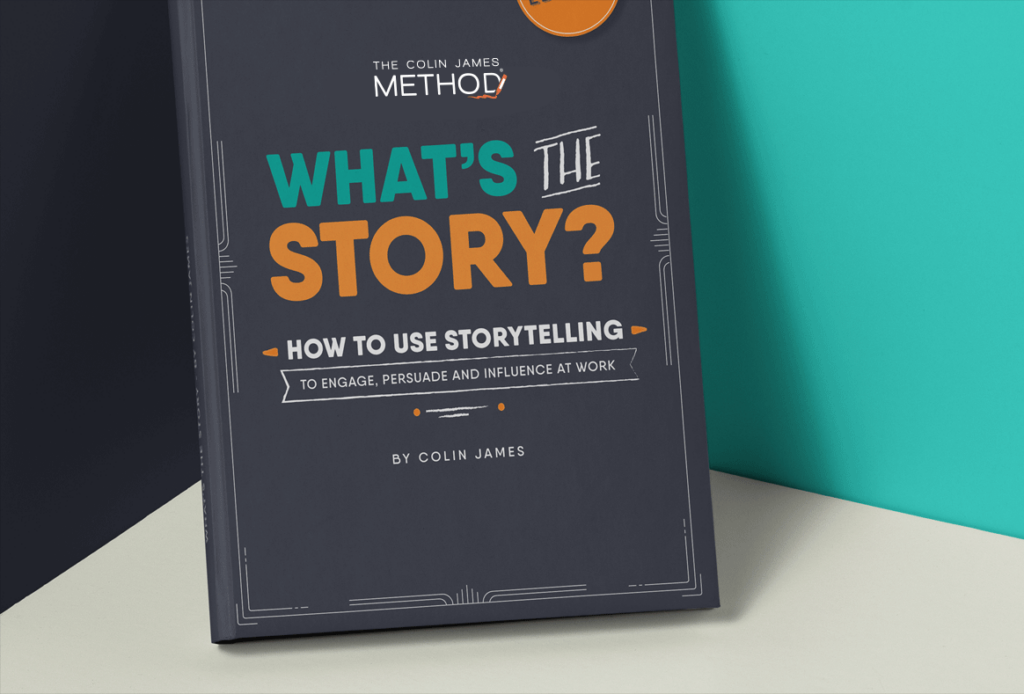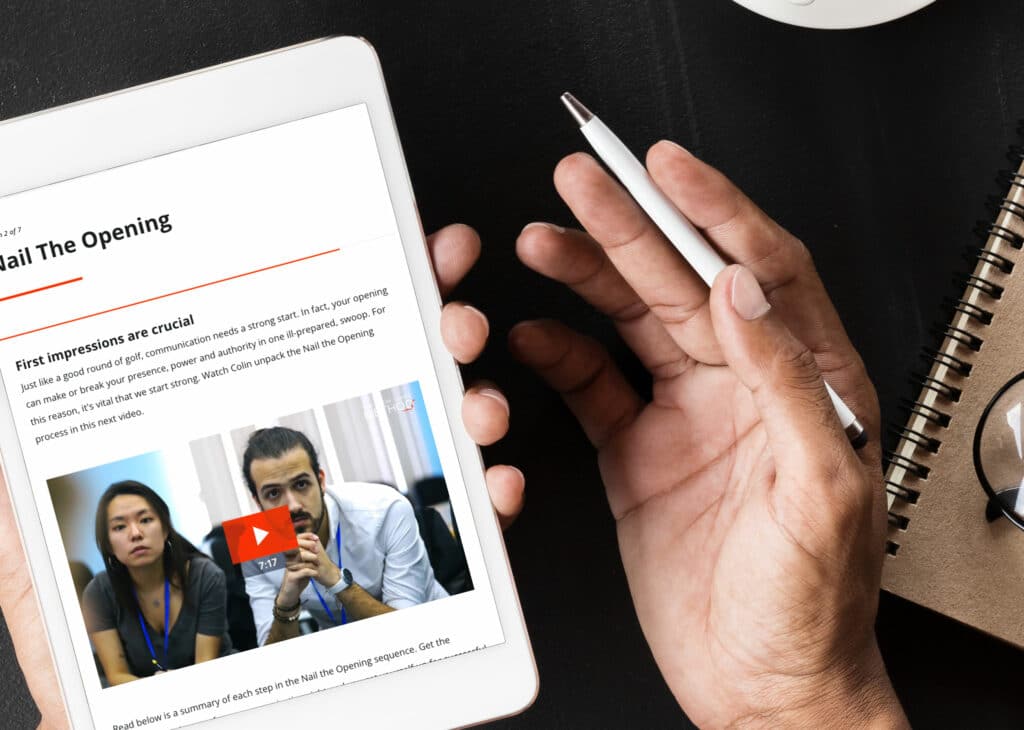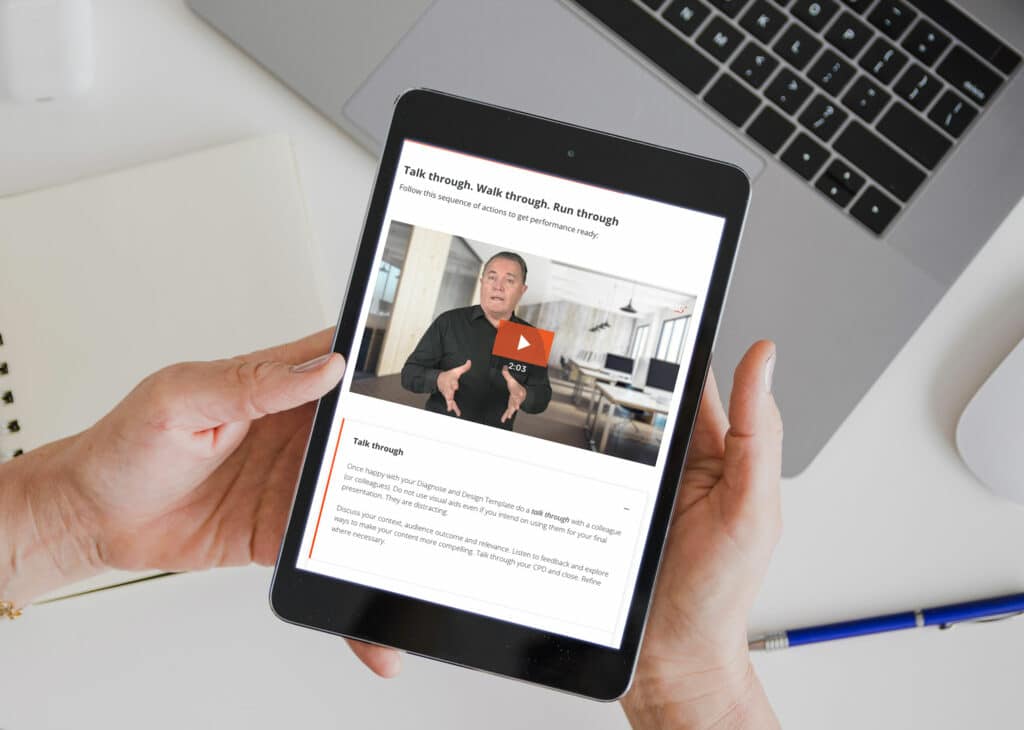In Greek mythology, The Sirens, those mythical enchantresses would lure unwary sailors to their death, simply with the power of their voices.
While we do not promote homicide by voice in any way shape or form, we do acknowledge that the voice is one of the most compelling ways to get your point across. It can help you command respect, attract engagement, and add meaning and tone to your content.
The voice becomes even more important when you can’t use nonverbal communication, for example, when you’re pitching on a call, or mediating a teleconference. So what can you do to make sure that your voice conveys meaning and clarity?
When we think about the auditory aspect of the P.A.V.E.R.S method, we are addressing two key elements:
1. How we use our voice like an instrument
2. What language we choose to use
These two factors will determine how engaging, commanding and exciting your communications are. So what’s involved in making your voice a veritable siren song?
Low and Slow
Let’s start with how you are saying the words.
One of the best ways to command respect and to get your point across is to make sure your voice is low and slow. Low and slow conveys clarity, calmness, steadiness and gravitas. The opposite — shrill and fast — can sound nervous, grating and a little bit desperate.
Margaret Thatcher knew the power of low and slow. After becoming the Secretary of State for Education and Science, she realised that if she wanted a higher appointment, she needed to regard her voice as a tool in her arsenal. She undertook extensive coaching to develop her style. Her speech transformed from the hectoring tones of the housewife to take on a more measured, strident and commanding mien, worthy of leading a country.
The healthcare industry also realises the power of low and slow. Doctors train to have low and slow voices because it reassures patients and can improve recovery rates. If a doctor said in a high-pitched speedy voice with an upward inflection: ActuallyIthinkthatyou’regoingtogetbetter? she would be viewed with suspicion. Low and slow engenders calmness and trust.
However, low and slow isn’t always the go. When you need to inject more zing and excitement into a meeting, you would use a voice that is more lively and energised.
Be a celebrant at the altar of language
Says the inventor of this glorious turn of phrase Stephen Fry. If you’ve listened to him read an audiobook, you know that he doesn’t just go through the motions, he relishes the words on his tongue, creating a rich tapestry for the listener. (If you haven’t experienced it, you should start here).
Mr Fry is particularly known for using language in unexpected and beautiful ways, delighting, provoking and conveying his worldview with aplomb.
He also demonstrates that it’s not just how you’re saying it, but what you’re saying that intrigues and engages.
‘But!’ we hear you object, ‘I am not a celebrated performer. I work in the corporate world, I have to talk about objectives, outcomes and the bottom line, there’s no room for aplombing, nor relishing!’
However, that isn’t a good enough reason. In fact, because meetings have a reputation for being dull, you have an onus to find a way to make your information engaging and entertaining.
“In fact, because meetings have a reputation for being dull, you have an onus to find a way to make your information engaging and entertaining.”
No-one likes rocking up for the Monday morning budget projection meeting, in fact, they may even be dreading spending hours looking at PowerPoints and listening to Craig from accounts drone on about fiscal responsibility.
If the topic feels dry, introducing surprising and poetic language immediately intrigues and arouses your colleagues from their anticipated stupor. Your communication should be the verbal equivalent of a confetti cannon – bright, beautiful words scattered to capture and delight your audience. And you don’t need to be Stephen Fry to do it (though it certainly helps). You just need to be more mindful of how you are using language.
Strive for simplicity
“Don’t use big words. They mean so little.” – Oscar Wilde
The classic editor’s bugbear are communicators who choose the word ‘utilise’ when ‘use’ is fine. Same with ‘while’ and ’whilst.’ Both the latter terms have a specific place, but not in everyday language. Bigger words won’t make you sound smarter, they can make you sound stuffy and overblown. Think about how you are using words. Can you substitute it with a smaller one?
Say goodbye to all of the jargon
And while we’re on the topic, jargon in most instances is off-putting, impenetrable and redundant. When you communicate, you are trying to get your point across clearly and precisely. If you are garbling things like ‘Looking at the bottom line, going forward, we really need to think outside the box and aim for the blue-sky.’ you’re about as clear as a muddy windshield!
Just say yes
This three letter word sounds like it should be so easy to say, yet most of us strive for an ‘absolutely’ ‘definitely’ ‘surely.’ (Slippery politicians are guilty of overindulging in such adverbs.) It’s hyperbolic and overblown. Just give a direct answer. Yes (or no) is a much more elegant substitute.
Be prepared
As with many communication techniques, learning how to use your voice effectively and making your language more elegant are skills that take a lot of practice and preparation.
If you are in a teleconference, for example, the way you speak is crucial in securing a good experience for all involved. It’s the only communicating device you have!
If you’ve set-up the conference, you need to think about how you want it to play out. Direct the conversation so that all participants can have a say.
For example: ‘Ok Angela, let’s hear from you, then we’ll move to Jackie and then Niall. Craig will then go over the budget.’ If Craig from accounts is hogging the limelight, then you need to interject: ‘That’s really insightful Craig, but we need to hear from Angela first, then we’ll get to you.’
Don’t be afraid to make a detailed agenda, and think about how you want to use your voice and language. Practice. Look to others for how they make their language exciting. You don’t need to be Stephen Fry. Nick ‘the honey badger’ Cummins, an Australian rugby player, has some of the most entertaining post-match interviews because he’s not afraid to use colourful and surprising analogies. You don’t have to have a degree in linguistics, but you do need to have the desire to lure your audience in every time you open your mouth.
If you’d like to know more about how to deliver captivating presentations, you should check out our guide to creating a memorable presentation today.

The Colin James Method® Facilitators train corporate executives to improve their professional communication skills with a proven methodology. Our highly trained Facilitators and Coaches are recognised for their experience in their fields and have worked with many individuals and organisations around the world to master the art of communication.













